

E3A Solar Hot Water: Introduction
Reviewed
Editor’s note
The following abstract describes a publication that is only available as a downloadable PDF.
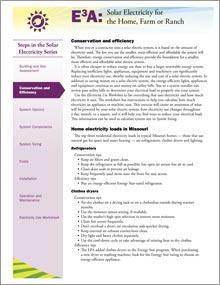
E3A Solar Electricity: Conservation and Efficiency
Reviewed
Follow these energy conservation tips to reduce your energy use so you can install a smaller, more efficient and affordable renewable energy system.

E3A Home Energy: Air Sealing
Reviewed
Editor’s note
The following abstract describes a publication that is only available as a downloadable PDF.

E3A Solar Hot Water: System Options
Reviewed
Editor’s note
The following abstract describes a publication that is only available as a downloadable PDF.
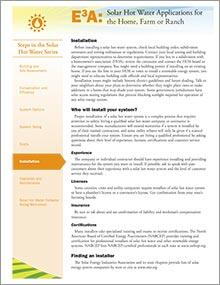
E3A Solar Hot Water: Installation
Reviewed
Editor’s note
The following abstract describes a publication that is only available as a downloadable PDF.

E3A Solar Electricity: System Sizing
Reviewed
Determine the correct size for your solar electric photovoltaic (PV) system, and view solar radiation data for flat-plate collectors and panels.

E3A Home Energy: Home Insulation Choices
Reviewed
Editor’s note
The following abstract describes a publication that is only available as a downloadable PDF.
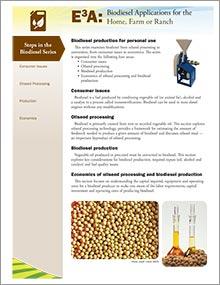
E3A Biodiesel: Biodiesel Production for Personal Use
Reviewed
Editor’s note
The following abstract describes a publication that is only available as a downloadable PDF.
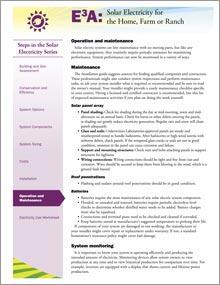
E3A Solar Electricity: Operation and Maintenance
Reviewed
Solar electric systems are low maintenance but need some attention to maximize performance. Learn various ways to monitor solar electric system performance.

E3A Home Energy: Saving Energy
Reviewed
Editor’s note
The following abstract describes a publication that is only available as a downloadable PDF.

E3A Home Energy: Top Ten Tips
Reviewed
Editor’s note
The following abstract describes a publication that is only available as a downloadable PDF.

E3A Biodiesel: Production
Reviewed
Editor’s note
The following abstract describes a publication that is only available as a downloadable PDF.
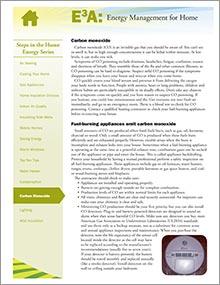
E3A Home Energy: Carbon Monoxide
Reviewed
Editor’s note
The following abstract describes a publication that is only available as a downloadable PDF.
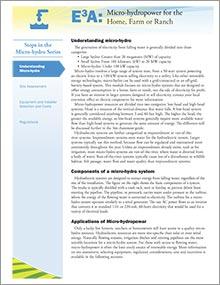
E3A Micro-hydro: Understanding Micro-hydro
Reviewed
Micro-hydro involves a range of system sizes and can be used with a grid-connected or off-grid, battery-based system. Learn about micro-hydro systems designed to offset energy consumption in a home, farm or ranch in this guide.

Chief Officer, Fourth Edition Manual
New from $65 to $77
This manual aims to provide the knowledge and skills base for Fire Officer III and IV candidates that is required by the NFPA 1021 job performance requirements. The text provides students with information about a chief officer's responsibility to supervise, manage, and administer fire and emergency services organizations.

E3A Small Wind: Small Wind Energy Checklist
Reviewed
Editor’s note
The following abstract describes a publication that is only available as a downloadable PDF.
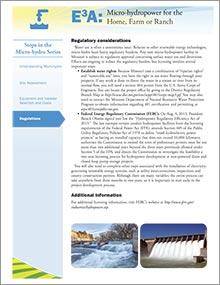
E3A Micro-hydro: Regulations
Reviewed
Any new micro-hydropower facility in Missouri is subject to regulatory approval concerning surface water use and diversions. Learn about the steps for licensing one in this guide.

E3A Understanding Energy: Needs Assessment
Reviewed
Editor’s note
The following abstract describes a publication that is only available as a downloadable PDF.
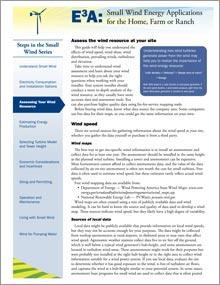
E3A Small Wind: Assessing Your Wind Resource
Reviewed
Editor’s note
The following abstract describes a publication that is only available as a downloadable PDF.

E3A Understanding Energy: Green Building Programs for High Performance and Energy Efficiency
Reviewed
Editor’s note
The following abstract describes a publication that is only available as a downloadable PDF.

E3A Small Wind: Economic Considerations and Incentives
Reviewed
Editor’s note
The following abstract describes a publication that is only available as a downloadable PDF.

Chief Officer, Fourth Edition Exam Prep
New $28
This Exam Prep is designed to be used as a self-study tool for students to prepare for comprehensive end of course tests and the written portion of a certification exam. It contains more than 500 multiple choice questions based on the Chief Officer, Fourth Edition Manual.

E3A Understanding Energy: Carbon and Energy in the United States
Reviewed
Editor’s note
The following abstract describes a publication that is only available as a downloadable PDF.
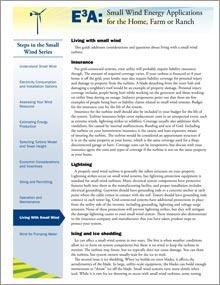
E3A Small Wind: Living With Small Wind
Reviewed
Editor’s note
The following abstract describes a publication that is only available as a downloadable PDF.
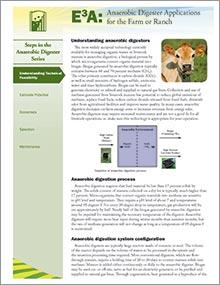
E3A Anaerobic Digesters: Understanding Technical Feasibility
Reviewed
Editor’s note
The following abstract describes a publication that is only available as a downloadable PDF.